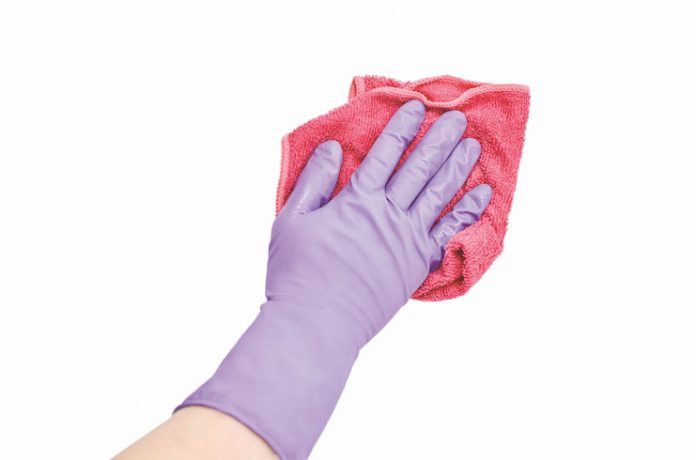
As travel returns, cleanliness throughout hotels remains critical to guests’ health and satisfaction. At the same time, the pressure on the travel industry to reduce its environmental footprint remains. To balance these interests and adhere to both hygiene and sustainability commitments, Wyndham Hotels & Resorts partnered with Ecolab to update its approach to cleaning, and in the process, achieve savings of 1.6 billion gallons of water, 28 Kilowatts of energy, more than 430,000 pounds of plastic waste, and millions of dollars. “Our partnership illustrates that there doesn’t need to be a tradeoff between effective hygiene and sustainable operations,” says Emilio Tenuta, senior vice president of corporate sustainability for Ecolab. LODGING touched base with Tenuta and Tracy Ripa, Wyndham’s senior vice president of franchise operations, about how to make cleaning processes more sustainable.
1Streamline and simplify.
Tenuta says that Ecolab worked with Wyndham to cut back on the number of products used in the cleaning process to save time and resources. For instance, they reduced laundry washing steps, water usage, and water temperature to reduce water and energy usage while maintaining linen cleanliness. “This program has helped Wyndham achieve annual savings of 160 million gallons of water and 28 million kilowatts of energy, reducing their greenhouse gas emissions by 5,800 metric tons,” Tenuta adds. In addition to advancing sustainability goals, these types of programs helped Wyndham achieve annual cost savings of $10 million.
2Consider packaging.
To reduce plastic waste in hotel operations, hoteliers can make an impact by rethinking packaging. For instance, implementing bulk amenities and reusable spray bottles for cleaning products can significantly reduce single-use plastic waste. As Ripa explains, “Waste-related topics have been a subject of increased public legislation, and we consider this an opportunity. Our hotels are doing their part with recycling programs, single-use plastic minimization, polystyrene foam, and plastic straw elimination.”
3Work together.
Hoteliers today have plenty on their minds—from filling front-line positions to driving top-line revenue, all while keeping up with changing circumstances amid the global pandemic. Tenuta says that industry partners will need to collaborate to navigate these shared challenges. “When we work together, we can tackle these challenges and deliver an exponential positive impact, helping protect our guests, communities, and environment, and supporting more resilient operations to help businesses lead in a changing world.”
4Look long-term.
Tenuta cautions that COVID-19 is by no means the last crisis hoteliers will experience in this interconnected world. “Every organization will need to work to future-proof their business to address upcoming challenges or crises. Health aids business resilience. Sustainable, efficient, and effective operations and products are always important to protect people and vital natural resources. As for cleaning and disinfecting processes and expectations increase globally to help address the risk of the COVID-19 virus, using effective and sustainable products is more important than ever.”











